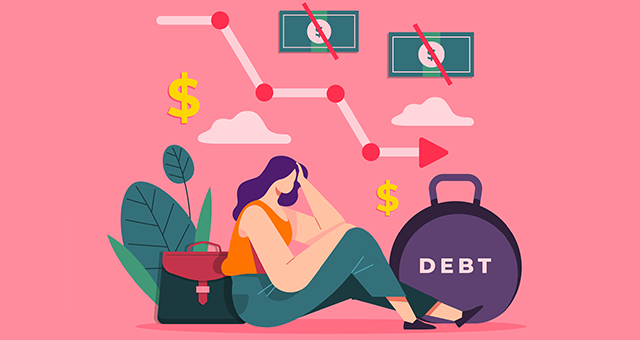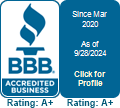
Unsecured Debt: What You Need to Know
Debt can be a powerful tool or a financial trap, depending on how you handle it. It can help cover expenses in times of need but can also become a burden if not handled properly. Unsecured debt—credit cards, medical bills, and personal loans—is one of the most common forms of borrowing. But do you truly understand its risks and how to manage it effectively? Let’s dive into the realities of unsecured debt and explore practical strategies to take control of your financial future.
What is Unsecured Debt?
Unsecured debt is any loan or credit that does not require collateral. Lenders approve these loans based on your credit score, employment stability, financial history, and debt-to-income (DTI) ratio instead of securing them against an asset like your home or car. Because lenders take on more risk, unsecured loans often have stricter approval requirements and higher interest rates.
- A credit score of 670 or higher improves the chances of approval, though lenders also consider your DTI ratio.
- While some lenders accept a DTI as high as 50%, most prefer it below 43%—or even 38% for better terms.
- If you default, creditors cannot seize your property, but they can take legal action, send debts to collections, or report delinquencies to credit bureaus, damaging your credit score.
Typical Examples of Unsecured Debt
- Credit Card Debt – A revolving line of credit that accrues high interest if balances are unpaid.
- Personal Loans – Fixed-term loans repaid in monthly installments, with rates based on creditworthiness.
- Student Loans – Federal and private loans that do not require collateral but can impact credit and finances if unpaid.
- Medical Bills – Unexpected healthcare expenses may go to collections if left unpaid.
- Retail Store Cards – High-interest credit cards offered by department stores with steep late fees.
- Old Repossessions – Remaining balances on repossessed assets, known as deficiency balances, which creditors may pursue.
Why is Unsecured Debt Risky?
Since unsecured debt lacks collateral, lenders face more risk, which results in higher interest rates and stricter repayment terms. Here is how it can impact your finances:
- High Interest Rates – Credit cards and personal loans often have steep interest rates, making balances difficult to pay.
- Impact on Credit Score – Late or missed payments can significantly lower your credit score.
- Calls from Debt Collectors – Outstanding unsecured debt can be sold to collection agencies, leading to constant calls and legal threats.
- Legal Consequences – Creditors can sue for unpaid balances, potentially resulting in wage garnishment or court judgments.
Common Myths about Unsecured Debt
Myth: Credit Cards Are the Best Way to Build Credit.
Fact: While responsible credit card use helps build credit, carrying a balance and making only minimum payments can lead to a cycle of debt. Paying off balances in full each month is the best approach.
Myth: Medical Debt does not Affect My Credit Score.
Fact: Medical debt can be reported to the credit bureaus if overdue for long. While newer scoring models reduce the impact of medical debt, collections accounts still hurt your credit.
Myth: Debt Collectors Can Arrest You.
Fact: In the U.S., one cannot be imprisoned for unpaid debt. However, ignoring a lawsuit can result in a default judgment, allowing creditors to garnish wages or freeze bank accounts.
Myth: Bankruptcy is the Only Way out of Debt.
Fact: While bankruptcy is an option,other solutions, such as debt settlement, consolidation, or payment plans, may be less damaging to your financial future.
Strategies to Manage and Reduce Unsecured Debt
1. Create a Budget and Prioritize Payment: Track your expenses and set aside a fixed amount for debt payments. Prioritize high-interest debts (like credit cards) to minimize long-term costs.
2. Consider Debt Consolidation: Consolidating multiple high-interest debts into a single lower-interest loan can simplify payments and reduce costs.
3. Negotiate with Creditors: Many lenders are willing to lower interest rates or offer payment plans if you are struggling with debt. Reach out before missing payments.
4. Avoid Minimum Payments: Paying only the minimum can keep you in debt for years. Always aim to pay more than the minimum to reduce interest charges.
5. Explore Debt Settlement: If overwhelmed with debt, settlement programs can negotiate lower balances. However, this may hurt your credit score, so weigh the pros and cons.
6. Seek Professional Help: If debt feels unmanageable, a debt relief expert can provide personalized solutions to regain financial stability.
Tips to Avoid Falling into Unsecured Debt
- Spend Wisely – Stick to a budget and avoid impulse purchases.
- Build an Emergency Fund – Savings can prevent dependence on credit for unexpected expenses.
- Pay off Balances in Full – Avoid interest charges by clearing credit card balances each month.
- Monitor Your Credit Report – Regularly checking your credit report helps catch errors and stay informed.
- Avoid Impulse Borrowing – Think twice before taking out loans for non-essential expenses.
Wrap-Up
Debt does not have to control your life. Understanding unsecured debt and using clever repayment strategies can help you regain financial freedom. Start small, stay consistent, and remember—every step you take toward reducing debt is a step toward a brighter monetary future.


